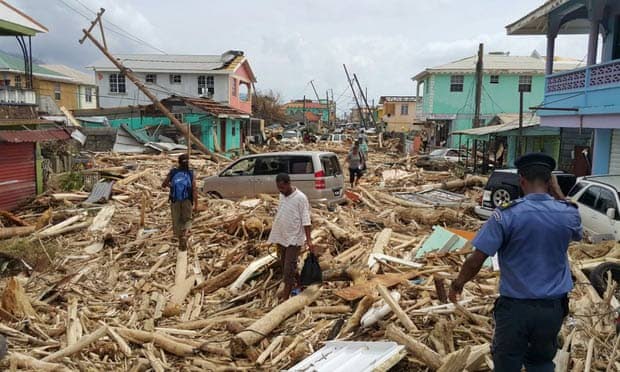Reality of climate change

FREETOWN COLLECTIVE
OVER THE weekend of October 20-21 torrential rainfall wreaked havoc over vast areas of TT. A month’s worth of rain fell over two days and the resulting flooding affected 100,000-150,000 people across north, east and central parts of our beautiful islands.
We looked on in horror as friends, neighbours and fellow citizens did the best they could to cope with the unprecedented event. Luckily no lives were lost, but like everyone else we have heard of many close calls and situations of people stranded or swept away by flood waters as they tried to save children or other loved ones.
The photos of the event and its aftermath were a waking nightmare the morning after. We were able to come together as a country and as communities to help those most severely affected but it will take a long time for families to rebuild their lives and recover from the trauma.
As a result of climate change, we may not have as much time as we think. The most recent scientific report on this critical issue tells us that the worst is yet to come and is closer than we imagined. In a few short years, events such as the rain which affected us on that weekend in October may become more intense and more commonplace – with less time in-between for recovery.
This is the reality of climate change that has already begun to affect TT as a highly vulnerable small island nation and which has been affecting other vulnerable countries and people everywhere.
Earlier this month, 29 people died in Sicily, Italy, as a result of heavy flooding. Elsewhere, the summer season brought record deaths due to heat waves, and in California tragedy mounts from deadly and destructive forest fires – made more intense by increased temperatures and climate change.
Climate change threatens to deliver a future of constant disaster, heartbreak and suffering – especially for those least able to cope and those with the least resources for recovery.
The science tells us that although it will take efforts at an unprecedented scale to change energy and industrial systems in time, it is still possible to mitigate the impacts of climate change by limiting the increase in average global temperatures to 1.5 degrees Celsius. It remains economically and technologically feasible. The only thing missing is the political will of world leaders to guarantee a better future for us all.
Today, leaders of countries most vulnerable to climate change will be participating in the world’s first-ever online climate meeting. These leaders will be celebrating their efforts to combat climate change and decarbonise their economies and will also be calling on the leaders of the global north to take necessary and urgent steps to save our beautiful planet, and the creatures we share it with.
The president of the Republic of the Marshall Islands, Hilda Heine, who is chairing the summit, has said, “All nations must urgently find ways to step up and do more to tackle climate change if we are to protect vulnerable nations and people everywhere from an escalation of life-and-development-threatening danger, including existential threats to nations like my own.”
Her own country is at immediate threat from sea-level rise. Like many other Pacific islands, the people of the Marshall Islands face displacement and loss of their land and their very way of life as a result of climate change.
The destruction wrought by last year’s hurricane season is still fresh in our minds. Our Caribbean neighbours are still in the process of grieving and rebuilding their lives after Hurricane Maria. The science tells us that we are already committed to losing at least half of the world’s coral reefs before the end of this century in the best-case scenario – as a result of ocean acidification and climate change.
Is this the future we want for ourselves and for our children – one where we are in a constant state of preparing for or recovering from disasters, or one where two days of rain can cause a nationwide state of emergency? Will we continue to be so lucky that no lives are lost?
The Climate Vulnerable Forum Virtual Summit will demonstrate to world leaders that the countries most affected by climate change are stepping up to the challenge and acting with the urgency required. It will be a crucial moment for global leadership on climate change.
We can all join in the global conversation and make our voices heard by logging on and participating in the summit.
The time to speak up is now.
The CVF Summit will be held entirely online today on the website: www.virtualclimatesummit.org/ You can also join the conversation on twitter: #VirtualClimateSummit
Freetown Collective is a genre-bending, dynamic musical ensemble from TT. Its music seeks to reflect challenges faced by people and the planet and what it means to be human
caption
FLASHBACK: Roseau, the capital of Dominica, suffered devastating damage from Hurricane Maria last year.
Photo courtesy STR/AFP/Getty Images

Comments
"Reality of climate change"